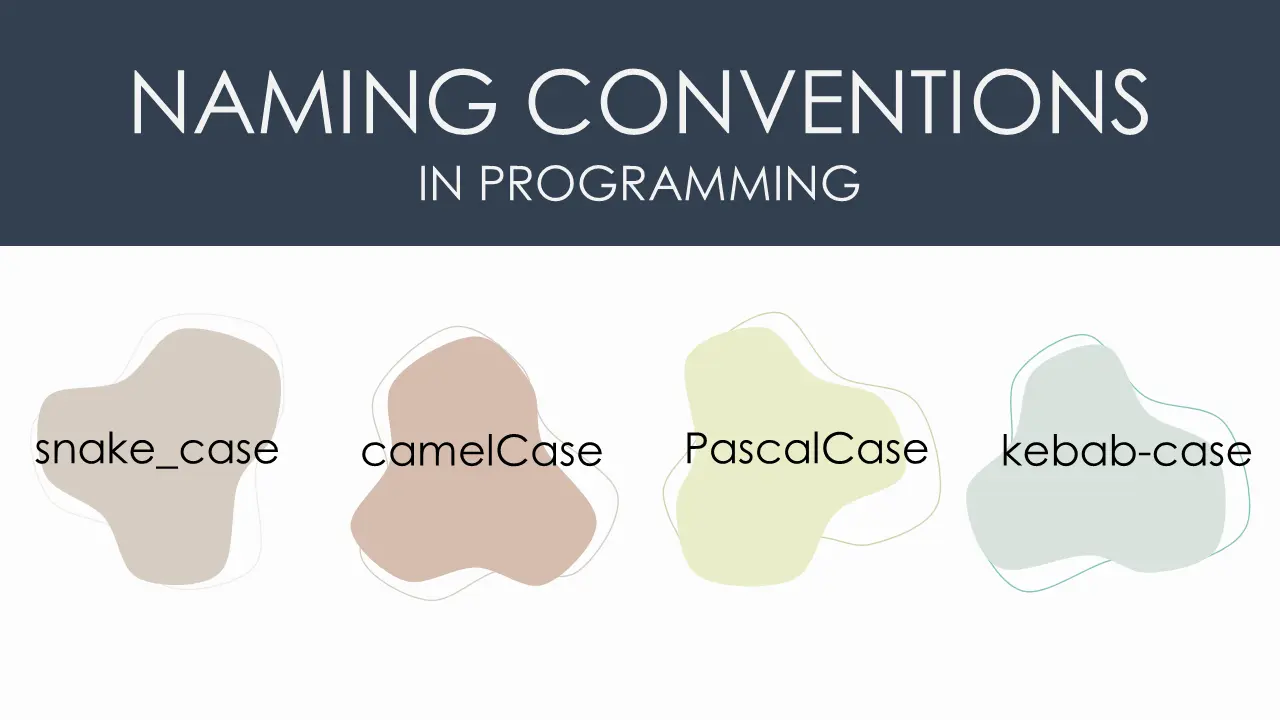Solopreneurship for Software Developers

snake_case vs camelCase vs PascalCase vs Kebab-Case
Snake Case, Camel Case, Pascal Case, and Kebab Case are all different naming conventions used in programming and software development to define how identifiers should be formatted.
Identifiers are names given to variables, functions, classes, or any other element in a codebase. Each convention has its own rules and purposes.
In programming, spaces are reserved characters, this means that you cannot leave spaces between the different words when creating a function, a class, or a variable.
For example, you cannot do the following:
my variable name = “Hello World”This will result in an error, to avoid this, programmers use different cases such as Snake, Camel, Pascal, and Kebab case. Here’s a breakdown of each:
Snake Case is a casing style where words are separated by underscores (_). All words in Snake case are either lowercase or uppercase.
Instead of writing
my variable name = “Hello World”You will write
my_variable_name = “Hello World”or you can also use all uppercase, e.g.
MY_VARIABLE_NAME = “Hello World”FORMAT: Words are separated by underscores (_).
EXAMPLE: my_function_name or MY_FUNCTION_NAME
USE CASE: The Snake Case is commonly used in programming languages like Python for variable names and function names. It’s easy to read and is often used when spaces are not allowed in identifiers.
Camel Case is a programming case style where you start by making the first word lowercase. Then, you capitalize the first letter of each word that follows.
Instead of writing
my Variable Name = “Hello World”You will write
myVariableName = “Hello World”FORMAT: Words are joined without spaces, and each word starts with a capital letter except the first one.
EXAMPLE: myFunctionName
USE CASE: Commonly used in programming languages like JavaScript and Java for variable names, function names, and method names. It’s especially popular in languages with object-oriented programming (OOP) practices.
Pascal Case is similar to Camel case but it requires the first letter of the first word to also be capitalized.
Instead of writing
My Variable Name = “Hello World”You will write
MyVariableName = “Hello World”FORMAT: Similar to Camel Case, but the first word also starts with a capital letter.
EXAMPLE: MyClassName
USE CASE: Often used for naming classes and types in object-oriented programming. It helps distinguish classes from variables and functions.
Some programmers usually use a combination of Camel and Pascal Case.
Kebab Case is a casing style where words are separated by hyphens (-). All words in Kebab case can be all lowercase, all uppercase, or capitalizing only the first letter of each word.
Instead of writing
my variable name = “Hello World”You write
my-variable-name = “Hello World”or
MY-VARIABLE-NAME = “Hello World”or
My-Variable-Name = "Hello World"FORMAT: Words are separated by hyphens (-).
EXAMPLE: my-function-name
USE CASE: Commonly used in URLs, file names, and sometimes in configuration files. It’s less common in programming for variable and function naming.
These naming conventions serve to make code more readable and maintainable.
Consistency in naming helps in collaboration among developers and understanding code, especially in larger projects.
Different languages and communities may have preferences for one convention over the others, so it’s important to adhere to the conventions used in the specific context you’re working in.
Remember that while these conventions are widely followed, the most important thing is to follow the conventions already established within the project or organization you are working with.
This ensures that the codebase remains consistent and easy to understand for everyone involved.
When it comes to using case styles, there is no definite answer as to which one is the best. Most of the time it is about personal and organizational preferences.
Some programming languages and frameworks have established conventions that you should follow to make your code more understandable to others in the community.
The most important thing is maintaining consistent naming throughout your codebase. If you start using one convention, stick with it.
Regardless of the convention, make sure your names are meaningful and convey their purpose. Clear and descriptive names enhance the understanding of your code.
In the end, the choice of naming convention depends on the programming language or framework you’re using and the established conventions in your project or organization.
Adhering to these conventions contributes to code consistency and collaboration among developers.